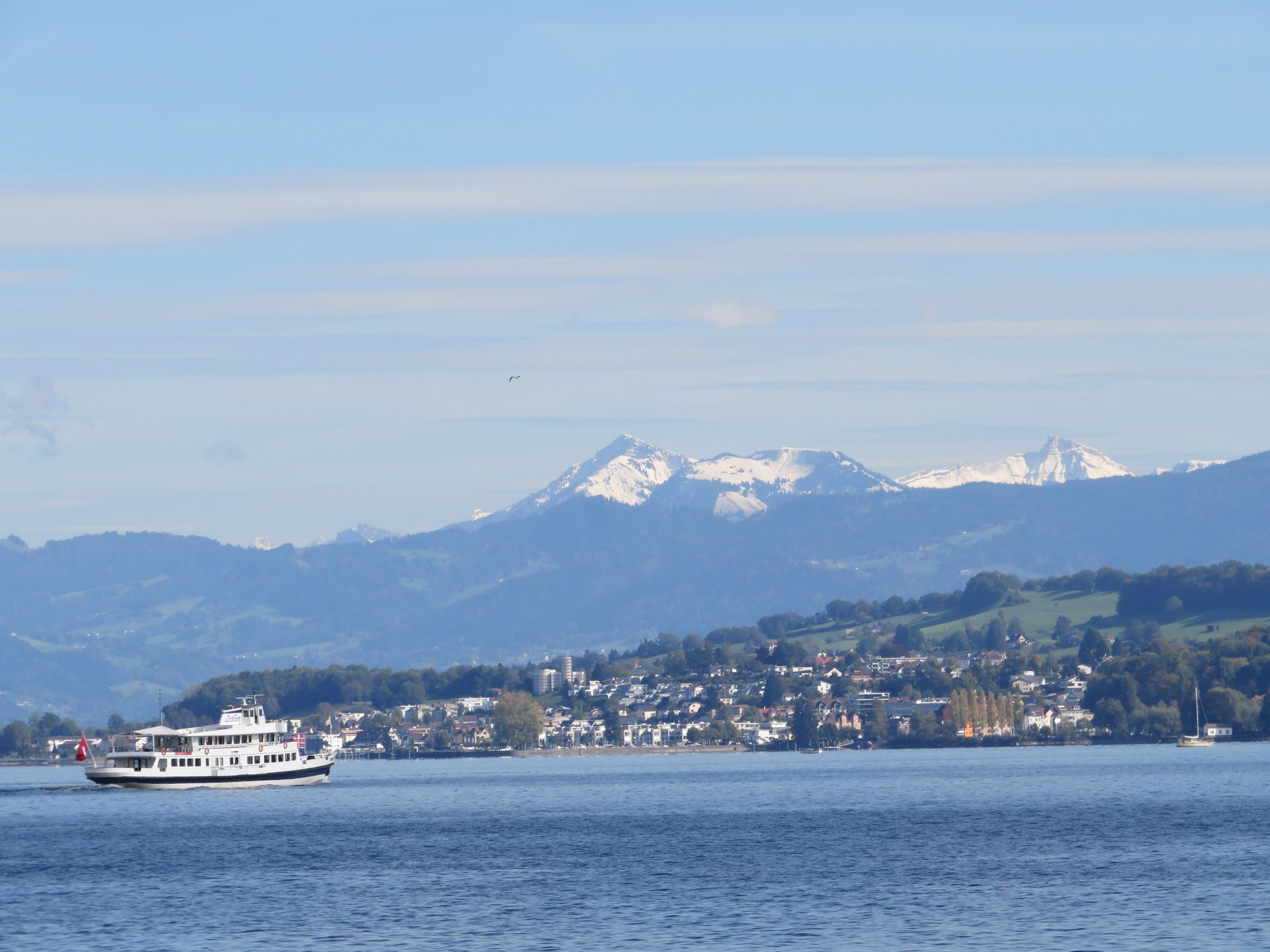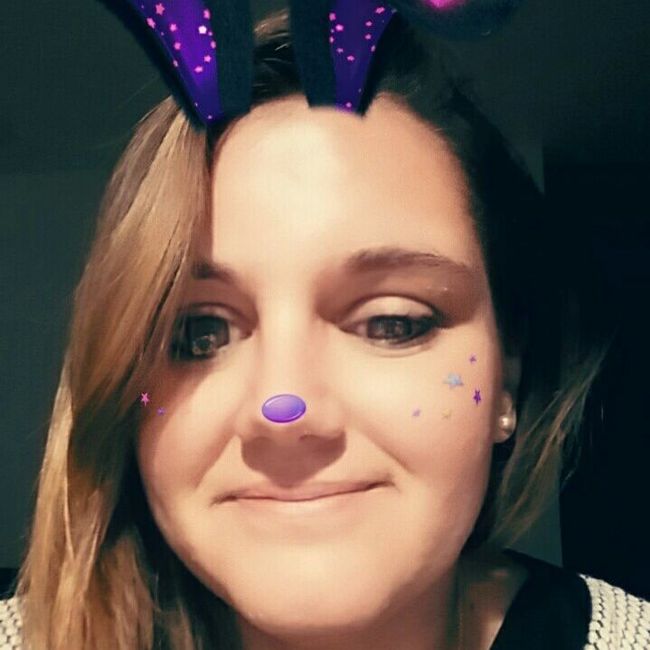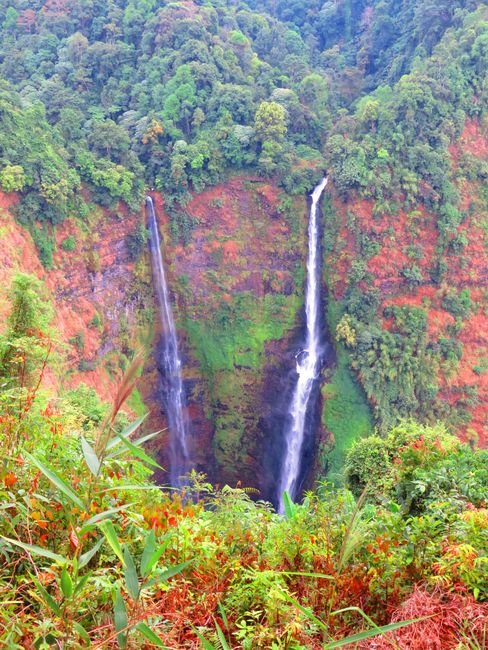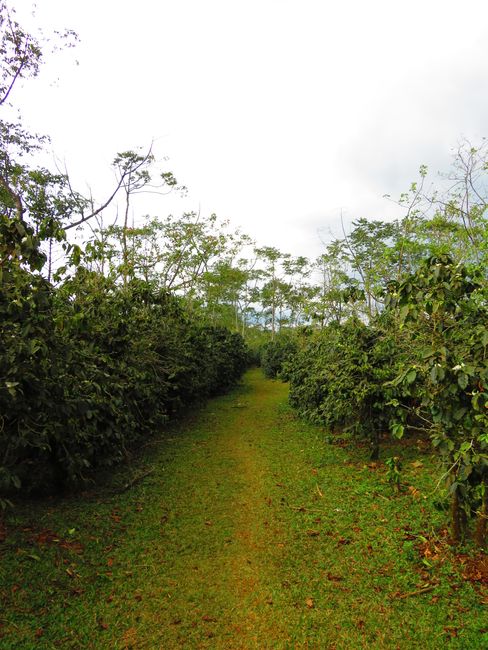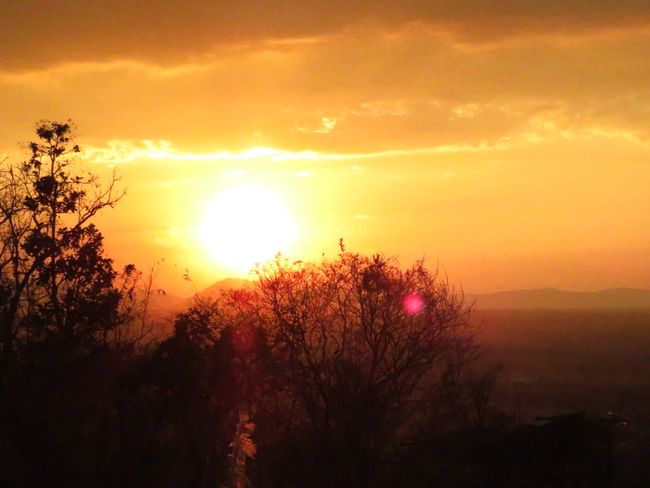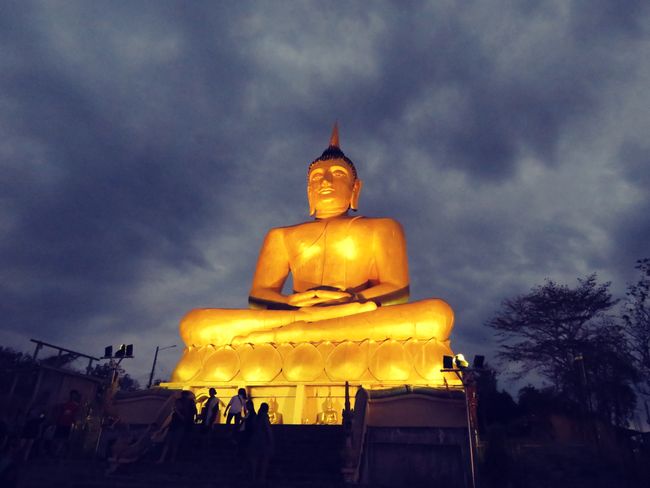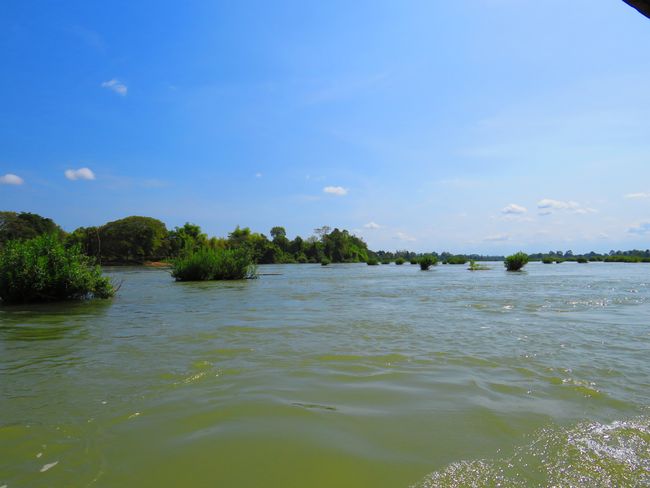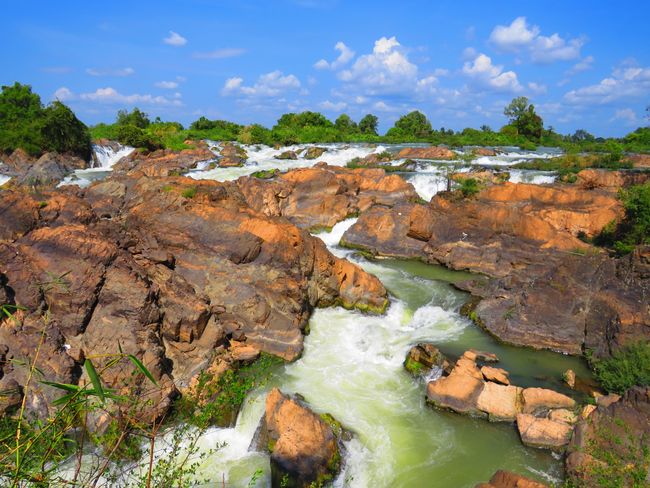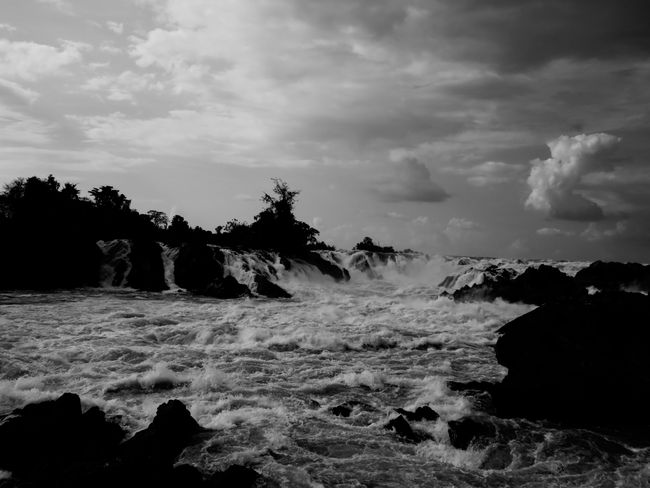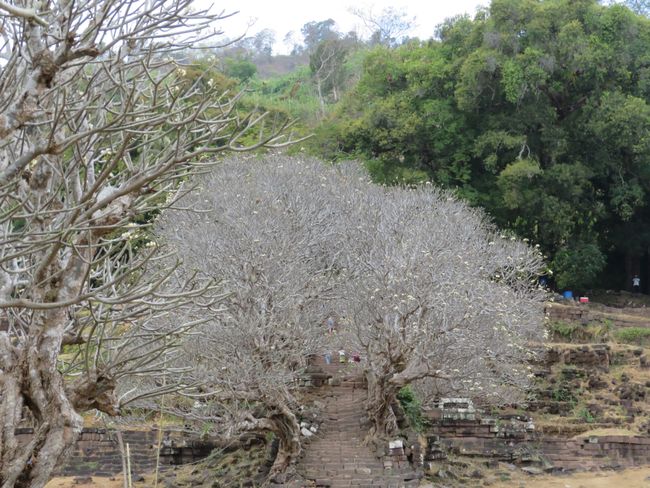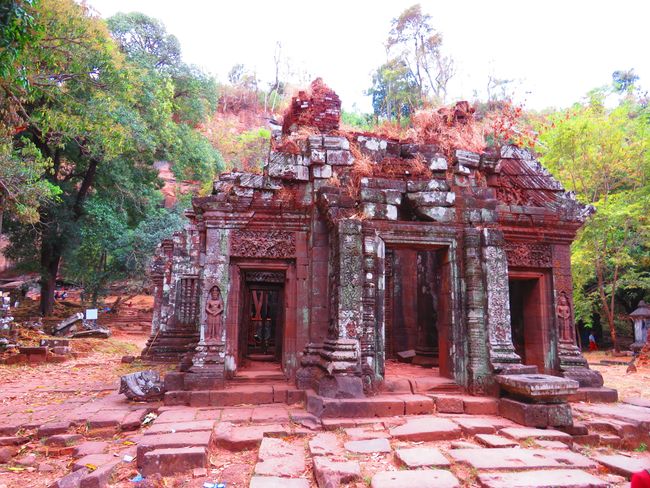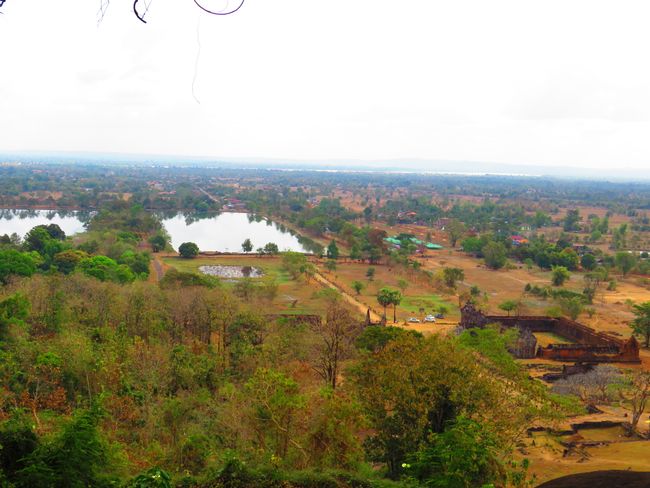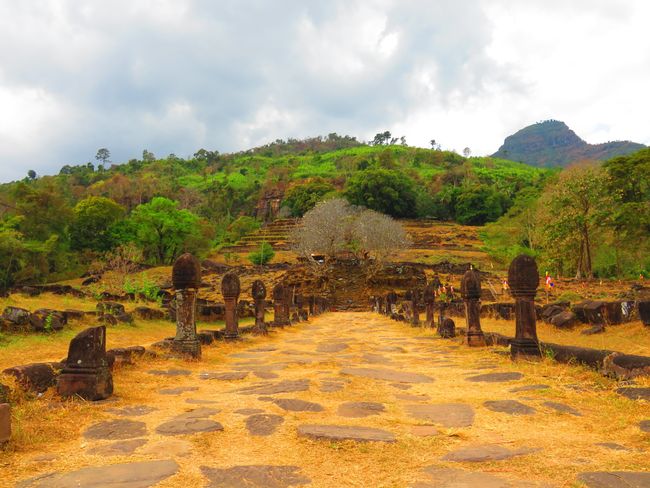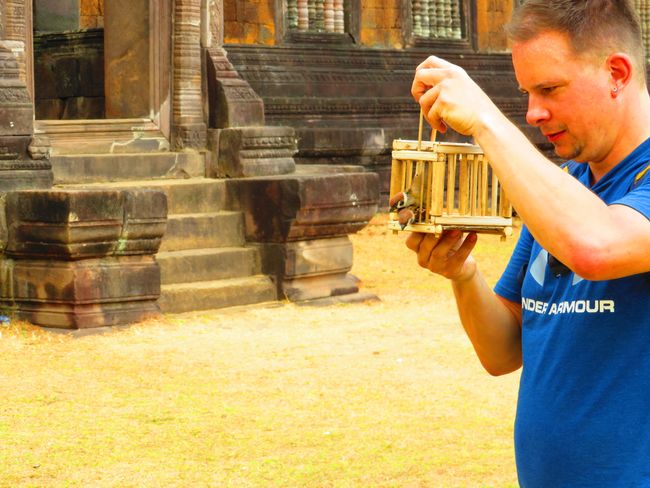Pakxé Part Two
ਪ੍ਰਕਾਸ਼ਿਤ: 25.01.2018
ਨਿਊਜ਼ਲੈਟਰ ਦੀ ਗਾਹਕੀ ਲਓ
Tuesday, we ride our Vespa up to the Bolaven Plateau. The plateau is a 1,200-meter high and 10,000 km2 large plateau in Laos. Various ethnic groups live on the plateau, belonging to the Mon-Khmer language family. With around 50,000 people, the largest group is the Laven. The plateau is named after them (Bolaven = homeland of the Laven). Agriculture is mainly practiced on the plateau. Rubber, cardamom, pepper, green tea, and coffee are grown, which gives the plateau regional importance. However, there is not only coffee trees and farmland to see, but also two famous waterfalls. One is Tad Fane and the other is Tad Yuang. Tad Fane is a 120-meter tall twin waterfall and the highest in the country. You cannot go down to the "catchment area," but from the viewpoint, you have a good view of the waterfalls. The entry fee is 50,000 Kip / person. Tad Yuang is not as tall, but it has a really large swimming pool where you can cool down. The entry fee is 10,000 Kip / person. After the sightseeing, we continue to drive up to the plateau. We want to pay a visit to Mr. Coffee. He takes groups through the coffee plantations and can tell a lot about the coffee and the plateau. Unfortunately, we can't find him, so we just drive around the villages and wave to the people on the roadside. When it starts to rain and get relatively cold, we start our journey home around 2:30 p.m. Back in Pakxé, we have a small meal at a restaurant and then drive up to Wat Phou Salao, a mountain on the other side of the Mekong, opposite the Lao-Nippon Bridge. The large golden Buddha is part of the complex and looks down on the land and the river. The place is a popular meeting place for lovers, families, believers, and groups of friends to watch the sunset. The same goes for us. We find a bench right under the Buddha and silently enjoy the natural spectacle.
Wednesday 24.01.2018, it is 6:30 a.m. The alarm clock rings. Today we visit the 4000 Islands with a booked day trip. In the south of Laos, on the border with Cambodia, the Mekong reaches its widest width of 14 kilometers. There are about 4000 islands in the tropical river landscape. Most of the islands are uninhabited and are flooded during high water levels. The cost of the excursion is 290,000 Kip / person. This includes the transfer by minivan to the 4000 Islands, the boat trip from Ban Hat Xai Khun to Don Khon Island, the use of a bicycle on the island, and a bottle of water that we receive before getting on the boat. The organizer tells us that the journey from Pakxé to the 4000 Islands takes about two hours. We have three. Our driver has to first gather all the guests who are spread throughout the city. Finally, at 11 a.m., we reach the village of Ban Hat Xai Khun and meet Vanessa, a backpacker from Belgium, as we get off the boat. She is 25 years old and traveling alone. Since there are only three of us who booked the day trip, we team up. All the other passengers have their luggage with them to spend one or even several nights on one of the inhabited islands. So the three of us ride the boat to Don Khon Island and pick up our bicycles at the port. They are slightly larger "children's bicycles" in blue and pink. We sit on them and ride towards Li Phi Falls. On the way there, Vanessa tells us that she has been traveling for three months already and will conclude her four-month trip in Thailand. When we arrive at Li Phi Falls, we pay the entrance fee and take some photos before getting back on the bike and heading to the beach. We find a small beach that is not very inviting. Since we only have three hours on the island, we decide to ride back to the port and have something to eat. Done and done.
After the meal, the boat picks us up again and takes us back to the bus. Then we drive for about 30 minutes to the Khone Phapheng Waterfall. Here too, we pay admission and are a little surprised to find that Laotians and "foreigners" have to pay different entrance fees. (Imagine doing that in Switzerland) We spend half an hour at the waterfall and then slowly head back to Pakxé. At some point, we have seen enough of the water coming down the mountain. On the bus, we continue to have lively conversations about what we have already experienced and can give Vanessa some tips for Thailand. In return, she gives us tips for Cambodia and Vietnam. Vanessa, it was a cool day with you, and we wish you all the best on your onward journey :-)
Today is Thursday, and we slept in. We got up at 8 a.m. After breakfast, we took our Vespa and drove to the temple district Wat Phou in the cultural landscape of Champasak. It is about 37 kilometers from Pakxé. Passing rice fields and small villages, we arrived at the parking lot after three-quarters of an hour. The entrance fee is 50,000 Kip / person. For the parking lot, you pay 2,000 Kip.
The VIP shuttle bus takes us 100 meters to the former temple complex. We walk the rest. The remains of this temple complex are fascinating. We take lots of photos. Then we climb the mountain. Everything looks even more beautiful from above. We linger on a rock and watch the hustle and bustle below and on the mountain. Many families are out and about, bringing their offerings to the Buddhas.
When we go down, we notice a stall with many small cages, each containing two sparrows. We ask the seller what the sparrows symbolize, and he explains that if you buy the sparrows and then set them free, the Buddha approves of it and will fulfill a wish that you make before releasing the sparrows. Personally, I don't believe in such things, but we each buy a cage so that the poor birds can return to freedom. A good deed every day - I learned that from the scouts. Back at the hotel, we get ready for a sunset dinner on the rooftop terrace of our hotel. Unfortunately, it is cloudy, and the sun sets behind the clouds. Nevertheless, the atmosphere is nice and with one too many beers, it's time to go to bed now. After all, tomorrow is another day, and the journey continues to Siem Reap, Cambodia.
ਨਿਊਜ਼ਲੈਟਰ ਦੀ ਗਾਹਕੀ ਲਓ
ਜਵਾਬ
